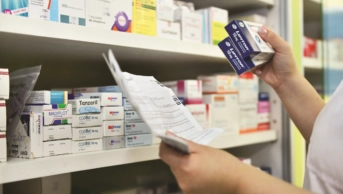
RPS
England’s chief pharmaceutical officer Keith Ridge has admitted that data he gave to an All-Party Pharmacy Group (APPG) inquiry suggesting that hub and spoke dispensing is ‘much safer’ than traditional dispensing were inaccurate.
Giving evidence to the APPG’s inquiry into primary and community care on 16 March 2016, Ridge said that community pharmacists have a ‘professional obligation’ to adopt automated dispensing because the error rate is much lower. Ridge cited evidence from literature that the error rate in community pharmacy in the UK “is around 3%” compared to large-scale automated dispensing facilities in Sweden, which he said had an error rate of 0.00001%.
However, the error rate for Sweden turned out to be almost double the rate Ridge quoted. In a statement published on 11 May 2016, Ridge said: “I was referring to the error rate published by Apotekstjanst AB in Sweden – in fact the published rate is 0.0000185%.” Additionally, this Swedish error rate is for dispensing “pouches” of medication, something which is not routine practice in the UK.
Ridge also admitted that the UK community pharmacy data error rate of “around 3%” that he quoted was based on observational data. “Now that I know the error rate from Sweden is determined by reporting, it is not appropriate [to] draw a direct comparison. I apologise for inadvertently misleading the committee and for any subsequent confusion,” he added.
That community pharmacy figure comes from a 2009 review which quotes a UK observational study showing dispensing error rates of 3.32%.
A spokesperson for the National Pharmacy Association (NPA), the trade association for independent community pharmacy professionals in the UK, says: “The Department of Health’s hub and spoke proposal is flawed – and this is just one of many claims that are unravelling.”
The NPA also criticised the references that Ridge had relied on. “Those significant criticisms of the research should, we believe, have been declared to the APPG,” the spokesperson added.


